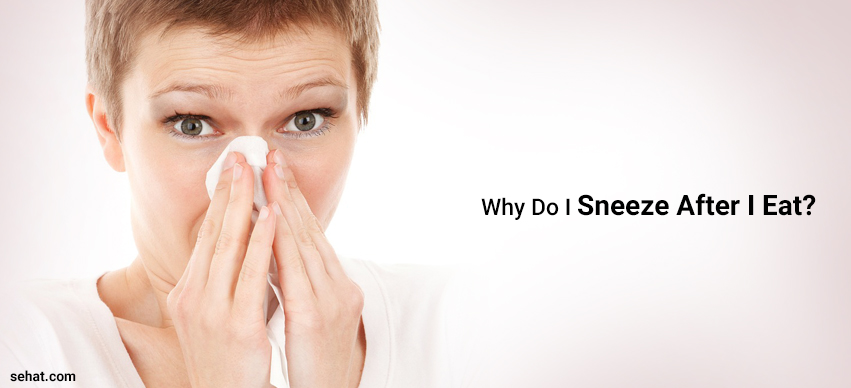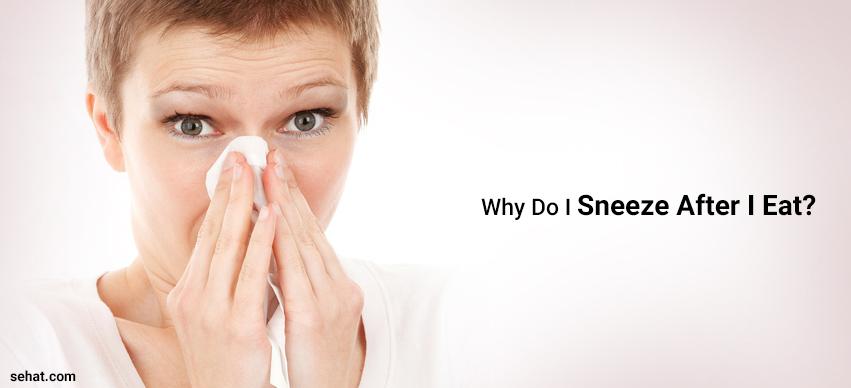How Communities Are Changing the Way We Think About Aging in..
8 Min Read


Many people experience constant sneezing after eating. Fortunately, the condition is not serious. People often think “why do I sneeze after I eat?†There are various causes of this condition. These include Satiation Reflex, gustatory rhinitis, food allergies, and genetic factors. The person can manage the condition by avoiding certain food items and by following other preventive measures.
People sneeze when there is an irritation in the nasal cavity. Irritation helps the nasal mucosa to recognize the presence of foreign particles inside the nasal cavity. Sneezing is a response that is initiated to expel out the foreign substance. Not only the particles and resulting irritation are the cause of sneezing, but a person may also experience sneezing after eating food. Surprised by the fact that sneezing is associated with eating! But It is true. There is a relationship between eating food and sneezing. A person eating certain food items is more prone to sneezing after eating. There are various other causes of sneezing after eating. At least a researcher indicated Autosomal dominant sneezing disorder provoked by the fullness of the stomach.
Following are the probable cause of sneezing after eating;
Snatiation Reflex is the combination of two words, "sneezing" and "satiation". Many people experience sneezing after eating a lot. Although the exact reason remains unknown, the condition may probably be due to stretching of the stomach. There are especially uncontrolled bursts of sneezing after a heavy meal.
Gustatory rhinitis, unlike allergic rhinitis, is a non-immunological condition. Symptoms include rhinorrhea which may be accompanied by sneezing after eating. Although the exact cause of this is not known, researchers suggest that stimulation of trigeminal sensory nerve endings because of the irritant food may be the probable reason for gustatory rhinitis. Nasal congestion is another symptom that may occur in gustatory rhinitis. The condition is relatively common in older adults.
At least a researcher has shown that sneezing after eating and stomach fullness are related in a person due to genes. Sneezing after eating occurs in the subjects when the stomach is full. Sneezing due to bright light and an allergic reaction was excluded in the people under observation.
It may sometimes possible that the person may suffer from cold or flu and coincidentally sneezes after eating. The two different conditions may sometimes seem related.
Eating food that initiates allergic reactions may also lead to sneezing after eating. Apart from sneezing, the person may also suffer from runny nose and watery eyes. Severe hypersensitivity may lead to anaphylactic reactions and the patient may have swelling and difficulty breathing. Some people sneeze after eating chocolate.
There are various causes of sneezing after eating. Different causes have different underlying physiology. Eating the food that causes allergy leads to the activation of the immune system. This activation, along with various other symptoms, causes sneezing.
Although the cause of the snatiation reflex is not known it is triggered by the fullness of stomach and abdominal muscle stretch. There are certain chemical substances in the food that activates the nerves, leading to gustatory rhinitis and sneezing.
Some of the measures that reduce the incidence of sneezing after eating are;
The occurrence of sneezing after eating increases in case the person has mucus accumulation in the nasal cavity. Reduce nasal congestion by drinking enough water.
The chemical present in spicy food activates the nervous system and hence causes sneezing after eating so it is better to avoid eating spicy food.
Some people are more prone to sneezing after eating when they have stomach fullness. These people should eat a small quantity at frequent intervals.
To reduces the nasal swelling and congestion, use over-the-counter nasal decongestants.
Holding your breath while counting till 10 may help inhibit the sneezing reflex.
When sneezing results from an allergic reaction, use antihistamines to suppress the immune system.
Gustatory rhinitis is caused due to the presence of specific chemicals in certain food items. The person should avoid these foods to prevent sneezing and runny nose while eating. Following are some of the foods responsible for causing gustatory rhinitis;
By avoiding these foods and by following other preventive measures you can get rid of sneezing after eating and even can stop thinking "why do i sneeze after I eat?"